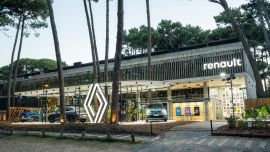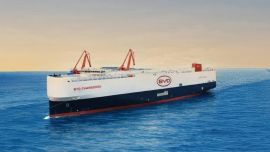Two weekends ago,I should have been starting a seven-day tour along the wine route from Salta to Mendoza with an Australian couple. Instead, as we enter our sixth month of lockdown, my travel business is paralysed.
I am a 55-year-old Brit who has been running a tour company in northwest Argentina since my salteña wife and I quit the pressures and pollution of London for a new life over here in 2008.
We began by opening up our six-bedroom home as a B&B and running small private tours with visitors principally from English-speaking parts of the world, inspired by the incredible visual riches of an area which seemed to have been discovered only by the intrepid (and the French, who seem to get everywhere).
My Australian guests were about to embark on their third tour of Argentina, having first visited the northwest in August 2011, when we took them on a tour of Salta and Jujuy. They returned to visit Bariloche and Mendoza in November 2015, and this time were planning to spend 17 days in the country.
Apart from the impact on my business, Poncho Tours, there is a knock-on effect all along the 1,800-kilometre route between Salta and Mendoza: the six hotels my guests were staying in, lunch and dinner in out-of-the-way restaurants en route, museums and archaeological sites they would have visited, wine and craftwork they would bought. Like the Covid-19 infection graph, it’s an alarming upward loop – the wider ramifications are immense.
In Salta Province we are one of 164 travel agencies; there are 530 hotels and more than 1,200 bars and restaurants, many of whom rely on free-spending holidaymakers to improve their profit margins.
A province like Río Negro, famous for the resort of Bariloche, may derive a higher proportion of income directly from tourism, but Salta has twice the number of people.
Fifty thousand people work in the industry, nearly a fifth of the working population across the province. Two million visitors came to Salta during 2019, 53 percent of whom had visited before, spending 7,700 million pesos, roughly 10 percent of Salta’s GDP.
“The fact so many people return speaks well of us: of the people, the food, the music, the landscape,” says Carlos Eckhardt, president of the local tourism chamber.
He characterises the current crisis as “a third world war, fighting an enemy we can’t identify, and with no idea of how long the war will go on: a war which won’t end until we have a vaccine.”
The situation is desperate. “We are living through a situation we have never experienced before. I don’t think we will return to 2019’s numbers for at least another two years,” says Eckhardt.
I run a small business, almost entirely dependent on foreign travellers: we have no employees, only one vehicle, our guides are freelance and, for us, home-office working began long before Covid. We can survive.
‘A matter of surviving’
Gary Pekarek, 62, set up his adventure tour company AlterNativa Salta 22 years ago. Like us, he’s a small operator without staff or overheads, but he bought a new Toyota Hilux in mid-January, banking on five months guaranteed work with one of the mining companies (always a good low-season option for tour companies like ours who use 4x4s for adventure tourism).
“I am paying quotas every month, I’ve basically spent all my savings. I asked Autolux what would happen if I stopped paying the quota and they said that after two months they would come and seize the vehicle.“
Freelance guide Rodrigo Bisbal, 48, works with a second-hand eight year old Amarok, which is at least paid. “I’ve basically reduced all my costs, I am doing jobs around the house, and I’ve sold our car, a VW Gol. I hope I can keep the pick-up,” he said.
“Luckily my wife Maria is working for a company importing medical equipment, so she should be in a job for as long as this lasts. The only way we will be able to return to work is that we get the vaccine.
“If we’re lucky, we could be working again in February or March. At the moment, it is just a matter of surviving.”
Fabrizio Ghilardi, 53, runs Socompa, one of the most successful adventure tour companies in Argentina. He has eight employees, who he has kept on, supported by the govenrment’s ATP (Asistencia de Emergencia al Trabajo y la Producción) scheme, emergency assistance which is supporting employees of registered companies.
“We’ve had some good years, so we managed to build up a fund which will see us through until March next year. But half of those agencies in Salta, running day trips with large groups on minibuses... they won’t survive.”
Fabrizio and his family are currently at home in Italy. Enjoying a well-earned break on the Ligurian coast, they’re seeing signs of recovery in local tourism.
“There is probably half the number than normal: no Chinese, no Americans, but more Brits and Germans. If the planes resume flying to Argentina, even twice a week, people will travel, maybe not in such great numbers.
“But some people will put on their mask and get on the plane. People who go all over the world, intrepid explorers, they will always travel.”
Like Fabrizio, I’m an optimist. Covid may change the way we behave and communicate with others, it will certainly bring in new rules for travelling, but it won’t kill the natural human desire for new sensations. Slowly people will return. But how many of us will still be left to welcome them?
* Nick Evans is a British journalist and tour guide based in Salta. Since 2008, he has been running Poncho Tours, a travel company specialising in tailor-made tours in northwest Argentina, with his wife.
**For more on the tour companies mentioned in this article, visit their websites:
– Poncho Tours: https://ponchotours.com/
– Alternativa Salta: http://www.alternativasalta.com/
– Socompa: https://www.socompa.com/es/


























Comments